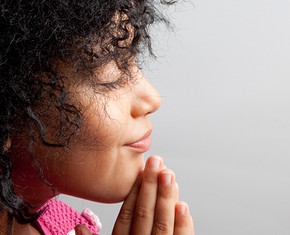The views expressed in our content reflect individual perspectives and do not represent the authoritative views of the Baha'i Faith.
From birth, human beings instinctually try to satisfy our physical needs and wants like the animals do – for food, water, shelter, and procreation so the species can survive. Is that all we need? No!
Humans also have powerful mental and spiritual needs and wants – to love and to be loved, to help others, to satiate our endless curiosity about the universe, to work altruistically so our entire species can progress and prosper.
We live our lives in a daily and never-ending quest to satisfy these needs, both physical and spiritual.
The renowned psychologist Abraham Maslow identified five levels of basic human needs:
1. physical survival,
2.physical safety,
3. love and belonging,
4. self-esteem, and
5. being self-fulfilled (or self-actualized).
We humans have developed complex methods to satisfy these needs, both intrinsically and extrinsically.
So how do we know when a need is satisfied? When hungry, we eat. When thirsty, we drink. When naked, we clothe ourselves, and by extension, find shelter. As we satisfy these and other needs, something occurs in us physically, psychologically, mentally and spiritually – we experience pleasure.
Pleasure occurs at the level of nerve endings in our physical body, and of synapses and neurons and the like in our brain, all part of our human composition. Our individual inner electrical connections and chemical reactions create the satisfaction that our pleasurable outward physical senses transmit. In the human brain, the release of dopamine in the nucleus accumbens is so consistently tied with pleasure that neuroscientists refer to the region as the brain’s pleasure center.
So does life simply mean the pursuit of pleasure, as so many might claim? While we know that pleasure is both genetic and learned, we also understand that pleasure represents only one of the components of overall happiness and satisfaction. So actually the constant pursuit of pleasure can block real happiness.
Civilized society would cease to exist if we did not control our impulses to derive pleasure wherever and however we found potential access to it, or if we could not delay perceived gratification. Such actions are abhorrent to most of us, because we have the capacity to love – to experience the lasting pleasure of the higher human aims and feelings.
That capacity emanates from deep inside us, in both tangible and ethereal ways. It begins with loving ourselves and expands outward as our spiritual capacity grows. It can expand to loving and caring for every human being on Earth.
The Baha’i teachings say:
Cleanse ye your eyes, so that ye behold no man as different from yourselves. See ye no strangers; rather see all men as friends, for love and unity come hard when ye fix your gaze on otherness. And in this new and wondrous age, the Holy Writings say that we must be at one with every people; that we must see neither harshness nor injustice, neither malevolence, nor hostility, nor hate, but rather turn our eyes toward the heaven of ancient glory. For each of the creatures is a sign of God, and it was by the grace of the Lord and His power that each did step into the world; therefore they are not strangers, but in the family; not aliens, but friends, and to be treated as such. – Abdu’l-Baha, Selections from the Writings of Abdu’l-Baha, p. 24.
Wouldn’t it be fantastic if our need for unity and love were greater than our need for pleasure, or to be right, or to acquire power, prestige, and wealth? Wouldn’t it be wonderful if we could consistently promote and enlarge unity between all people? In 1985 the Universal House of Justice, the democratically-elected leadership body of the global Baha’i community, wrote:
The experience of the Bahai community may be seen as an example of this enlarging unity. It is a community of some three to four million people drawn from many nations, cultures, classes and creeds, engaged in a wide range of activities serving the spiritual, social and economic needs of the peoples of many lands. It is a single social organism, representative of the diversity of the human family, conducting its affairs through a system of commonly accepted consultative principles, and cherishing equally all the great outpourings of divine guidance in human history. Its existence is yet another convincing proof of the practicality of [Baha’u’llah’s] vision of a united world, another evidence that humanity can live as one global society, equal to whatever challenges its coming of age may entail. If the Baha’i experience can contribute in whatever measure to reinforcing hope in the unity of the human race, we are happy to offer it as a model for study. – The Universal House of Justice, To the Peoples of the World, April 1985.
As Maslow pointed out in his hierarchy of needs, we all have greater needs than just satisfying our basic instincts. Seeking to satisfy the higher human needs of love and self-actualization makes us truly happy – much more so than the temporary, transient, and fleeting pursuit of mere pleasure. Truly, how can one’s own needs be satisfied without the help and support of others? Without unity? Without having an impact on our world?
O Thou the Compassionate God. Bestow upon me a heart which, like unto a glass, may be illumined with the light of Thy love, and confer upon me thoughts which may change this world into a rose garden through the outpourings of heavenly grace.
Thou art the Compassionate, the Merciful. Thou art the Great Beneficent God. – Abdul-Baha, Bahai Prayers, p. 72.
















Comments
Sign in or create an account
Continue with Googleor